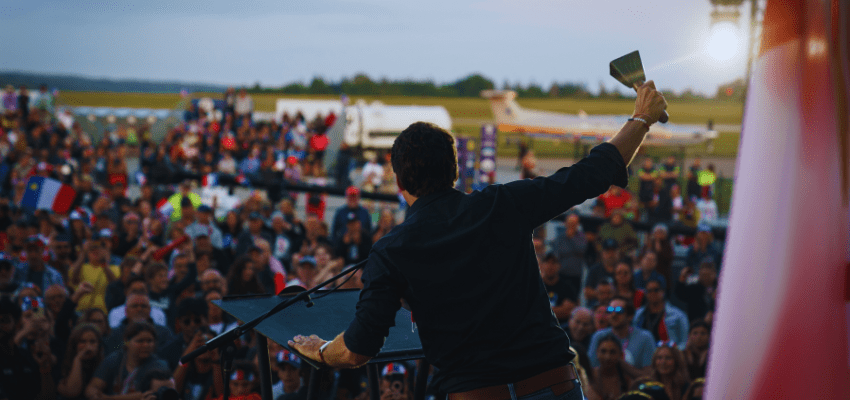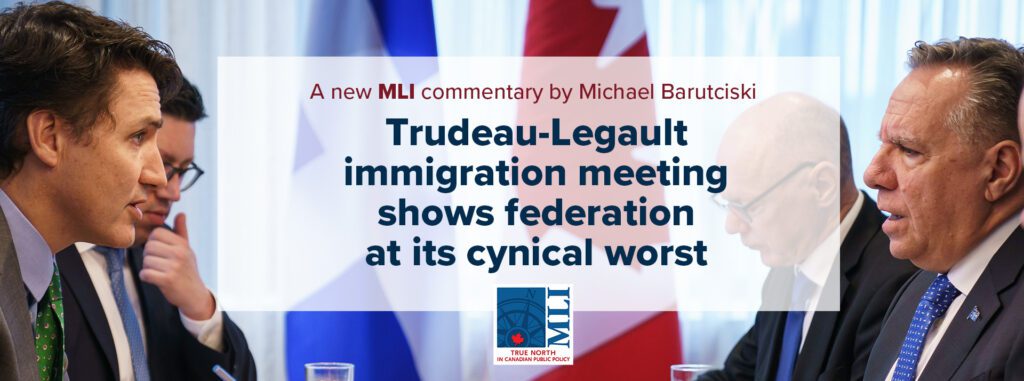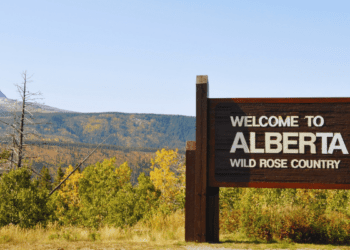This article originally appeared in The Hub.
By Christopher Dummitt, January 8, 2025
When the bitterness of the moment fades, and Prime Minister Justin Trudeau’s breathy voice no longer grates like fingernails on a chalkboard, where will his historic reputation stand amongst Canada’s prime ministers?
Over time, petty eccentricities fade and we’re left with big questions. What important things did he do? Did he leave a legacy of policy achievement? Was he able to intuit what the people wanted and lead enough of them through moments of crisis to a united national response?
Trudeau’s best hope for reputational significance probably lies in the areas of the environment, Indigenous relations, and social justice. From the very outset, even in his more moderate early phase, equity mattered. He would have equal representation of men and women in his cabinet. He pushed a nation-to-nation relationship with Indigenous Peoples, even when the nations in question were relatively tiny communities no bigger than small villages. Despite repeated claims that he was more interested in symbolism than substance, his governments frequently did real and substantive things.
Huge sums of money have been transferred to the Indigenous file in this country through basic funding but also in out-of-court settlements with Indigenous litigants. The Canadian government adopted a host of mechanisms to put equity approaches up and down the system.
Did this do any good? Did this lead to real improvements in the lives of Indigenous Canadians and other so-called “equity-deserving” groups? It’s too early to tell.
On the environment, what seemed an early success—the carbon tax—now looks sure to be a failure. Trudeau took a conservative market-based idea (the carbon tax) and made it one of his central policies. It seemed daring, and then quickly, it seemed impossible to oppose. It’s easy to forget now how quickly the carbon tax became part of the status quo. For the opposition to take it on appeared ludicrous, like courting political suicide. But, not anymore. It will almost certainly be gone within the year.
Managing the Canadian purse
This might not have happened if it weren’t for the Trudeau government’s failures to manage budgets and grow the economy. Remember the promise of only a few years of limited deficit spending? Bygone days. Remember when serious thinkers were proposing that governments never needed to balance the budgets—and these ideas seemed to actually catch on in Liberal circles?
It might not have mattered so much if Trudeau had run a national government that believed in the market. But the Trudeau Liberals believed governments can choose winners in the market (hello electric battery subsidies!), and that governments can direct economic growth. Trudeau’s equity focus also made him see the economy in a ludicrous old-fashioned manner, as if there was only so much wealth to be divvied up, in a zero-sum game. He never seemed to believe in the benefits of economic growth for growth’s sake. Perhaps too schooled in a critique of neoliberalism where trickle-down economics was supposed to solve everything, he forgot that economic growth, and free markets, lie at the foundation of funding all social justice programs. Without affluence, there is no welfare state.
Surely the biggest failure will be the Trudeau government’s immigration innovations—and we don’t even know yet how badly this has gone wrong. For years Canada was an outlier amongst Western nations in its support for multiculturalism and relatively high immigration. Someone someday will find out exactly what happened to get the Trudeau government to drink the Century Initiative’s Kool-Aid that a massive expansion in the Canadian population was the surest way to economic growth, and especially how they decided a lot of this should bypass our traditional points system and be done via the economically unfair temporary foreign worker program and an increase in international students.
(Dis)uniting the Nation
But even if the policy successes are mixed or in some cases failures, how about on the issue of unity? Did Trudeau unite his party and his nation?
Trudeau’s ability to keep the Liberal Party united behind him for as long as he did, even as important ministers like Morneau, Philpott, and Wilson-Raybould exited the cabinet, is astounding. Right up until almost the end, Liberals supported Trudeau even when it wasn’t in their party’s interest. Some might say it was due to the fact that he brought them from third-party standing to first in one election—the first leader to do this in Canadian history.
But what kind of Liberal Party will he leave behind? This might be more troublesome. Will they disappear? Or will a temporary time-out in opposition yet again be overcome? In this so much is contingent. Does anyone really think the Jagmeet Singh NDP is ready to replace the Liberals as a government in waiting? It’s possible—but you’d be a fool to bet on it.
On the more important national front, Trudeau fans should be worried about how his reputation will fare. He entered power with political separatism on the ebb and in a glow of united patriotism. He spoke of a moderate vision for the future and for middle-class Canadians. “Canada is back,” he announced as if the Harper years had been a horrific blip.
Ten years on, this kind of optimism now seems entirely misplaced. The PQ is set to be re-elected in Quebec. Even setting aside the failure to secure a Canadian seat on the UN Security Council, Canada surely didn’t come back internationally in the Trudeau years if that meant wielding more middle-power influence.
What’s more, the very idea of Canada as a nation has come apart. Partly this is about events much wider than Canada—the anti-nationalism of progressives, political polarization in the Trump era, and social media.
Like a lot of other centrist progressives, he blamed others for disunity even as his own government increasingly fostered disunity, most notably by pushing the politics of racial resentment around DEI. Trudeau and those of his ilk seemed oblivious to the way their own rhetoric and policies were part of a spiral of the polarization they loved to hate. They were always so keen to blame the other side that they couldn’t see their own enabling role in the conflict.
The next election will almost certainly be decided by economic issues, with immigration, affordability, and housing as key themes. But you have to wonder if Trudeau wasn’t able to pivot to these issues during his time in office the plight of everyday Canadians—because he didn’t like where the criticism was coming from, and who was criticizing him.
The great irony perhaps of these years is that Trudeau thought he was fighting populists in the form of Trump and Poilievre, but he was an odd kind of progressive populist himself, certain that he knew who the “real” Canadians were. But he lost sight of what Canadians have in common, including the economic struggle to survive in an increasingly stagnant economy, the conditions of which were partly created by his own government’s policies.
Perhaps one mostly forgotten detail will be the gravestone marking the Trudeau government’s failures: the lost citizenship guide.
When Trudeau came to power in 2015 he promised a new, more progressive Citizenship Guide for New Canadians. The bureaucrats went to work with their consultations, especially with Indigenous groups and others who thought the previous guide had been too celebratory.
What most Canadians probably don’t know is that the guide was created, and then edited, and then revised, and then revised again, and then…nothing.
It sat unused, unpublished. Who knows why? Did the Trudeau government perhaps have no real story to tell? No real vision of what united us as a country, that the country could actually agree on?
It’s not as big a problem as economic stagnation or the immigration screw-up, but it is an incompetence of a different sort: the failure to really understand the nation itself.







